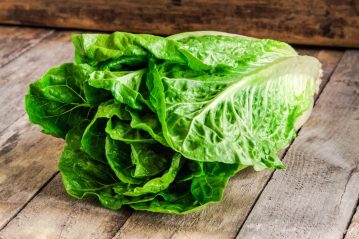If you recently purchased romaine lettuce, you might want to think twice before eating it. The US Centers for Disease Control and Prevention, also known as the CDC, has issued a strong warning urging all Americans to avoid consumption of the leafy green vegetable, and instead says you should throw it out or take it back to your point of purchase for a refund due to fears of E. coli contamination.
This latest warning comes just three months after the initial outbreak that caused as many as 53 people to become ill, killing 2; and while there had been no new cases reported since December, and the risk of developing E. coli was considered to be quite low, some grocery stores and restaurant chains across North America decided to voluntarily pull romaine lettuce from their store shelves and off their menus out of an abundance of caution. However, following new information coming to light in recent days, the CDC now says the outbreak has expanded to at least 16 states and sickened at least 60 people, including 8 inmates from the same Alaskan jail. Hardest hit states in this most recent outbreak include Pennsylvania, with 12 reported cases, and Idaho, with 10.
While the exact source of the contamination has yet to be identified, health officials say the information they’ve received thus far suggests that the contaminated lettuce was most likely grown in Yuma, Arizona. However, if you’re unsure of the specific source of your lettuce, the CDC says consumers should avoid it all together – even if you’ve already eaten it and have had no ill effects – as it can take anywhere from 24 hours to 7 days until symptoms will present themselves. The most common symptoms associated with E. coli that you need to watch out for include abdominal pain and/or cramps, gas, severe or bloody diarrhea, nausea, vomiting, and loss of appetite. Other complications can also arise, such as decreased urine output or bloody urine, pale skin, fatigue, dehydration, and fever. If any of these symptoms develop, or if your symptoms worsen or persist, you should seek immediate medical attention, as failure to treat an E. coli infection could be fatal – though the chance of this happening is typically quite rare, and in most cases an E. coli infection will get better on its own as long as you make sure you’re getting plenty of rest and drinking plenty of water. If you’re not getting enough fluids, you may require them needing to be administered to you intravenously. You may also need to be prescribed antiemetic medication, such as Zofran, to help relieve the nausea and vomiting.
Now you’re probably wondering what this outbreak means for Canadians. Well, there’s some good news to share. According to the Public Health Agency of Canada, Canadians are free to consume romaine lettuce without worry. That being said, Dr. Ali Ghahary still recommends taking the appropriate measures to ensure that your lettuce is well washed prior to serving and consumption, and that you don’t store lettuce in your fridge any longer than 7 days.




